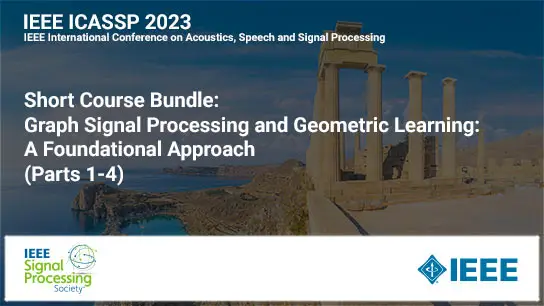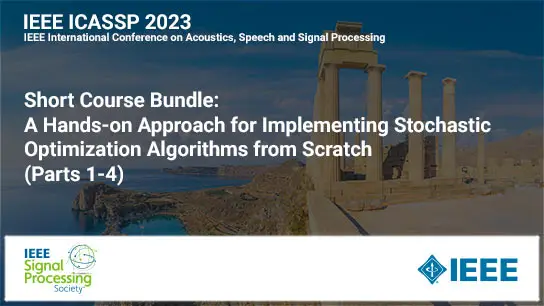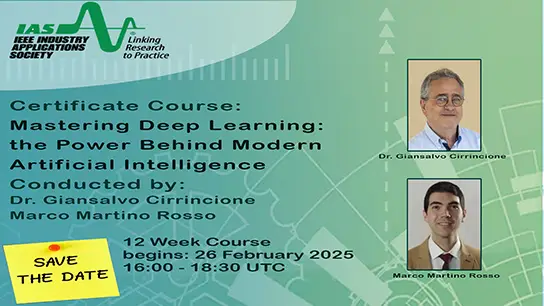Slides: Invertible Neural Networks and their Applications
Pier Luigi Dragotti, Jun-Jie Huang
-
Members: FreeSPS
IEEE Members: $11.00
Non-members: $15.00Pages/Slides: 44
11 Jul 2024
Invertible Neural Networks (INNs) are a class of deep networks that approximate bijective functions and are characterized by a forward mapping that can be inverted. Initially they were introduced as generative models, where the INNs learn a transformation between the input data distribution and a simple prior distribution (typically a normal distribution). The inverse mapping then automatically acts as a generator, converting the simple distribution into samples resembling the input data. More recently, INNs have also been employed to solve inverse problems.
In this talk, we argue that INNs are powerful systems applicable in a variety of fields. Their success stems from the fact that they can be designed by combining model-based methods with data-driven approaches. First, we explore the interplay between wavelet theory and INNs. Using the lifting scheme, we design a wavelet-inspired INN (WINNet) and focus on the image denoising task. WINNet achieves state-of-the-art performance in image denoising and generalizes well to images with unseen noise levels. Additionally, we demonstrate that WINNet can be used as regularizer in other image restoration tasks.
Next, we introduce INDigo, a novel INN-guided probabilistic diffusion algorithm for arbitrary image restoration tasks. INDigo combines the perfect reconstruction property of INNs with the strong generative capabilities of pre-trained diffusion models. Specifically, we leverage the invertibility of the networks to condition the diffusion process and in this way we generate high quality restored images consistent with the measurements.
Finally, to further showcase the capabilities of INNs, we present additional applications where INNs have had a significant impact, including image reflection removal and image steganography.


